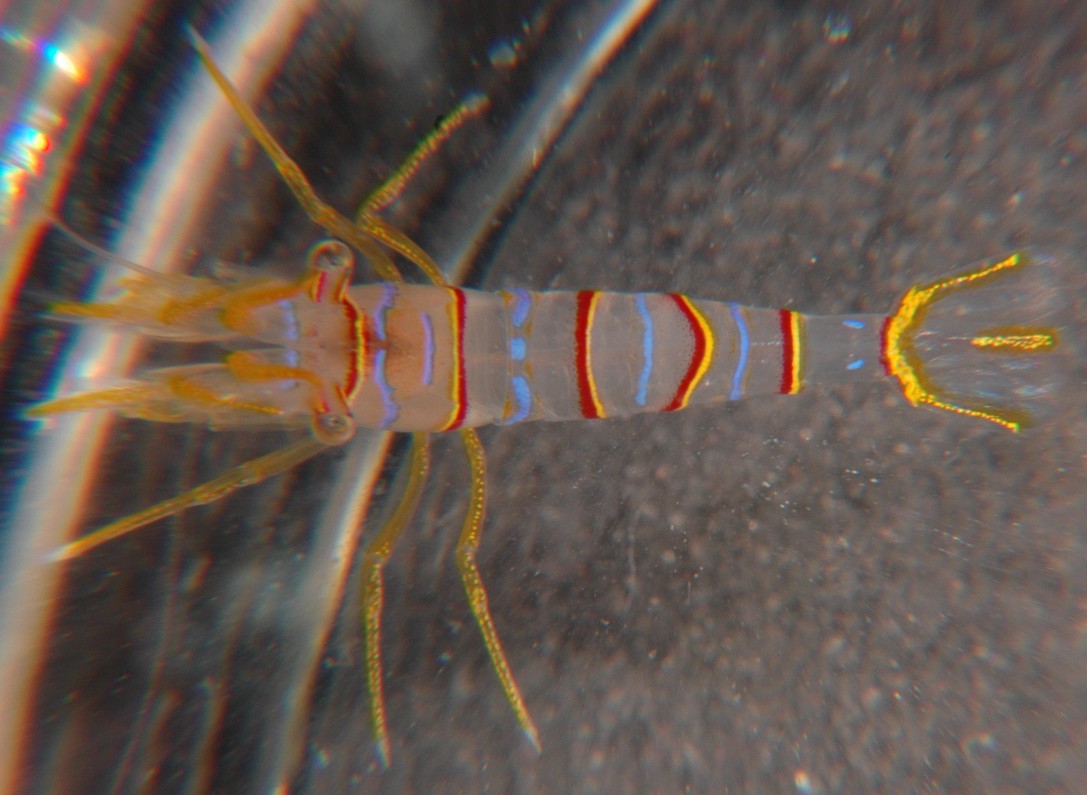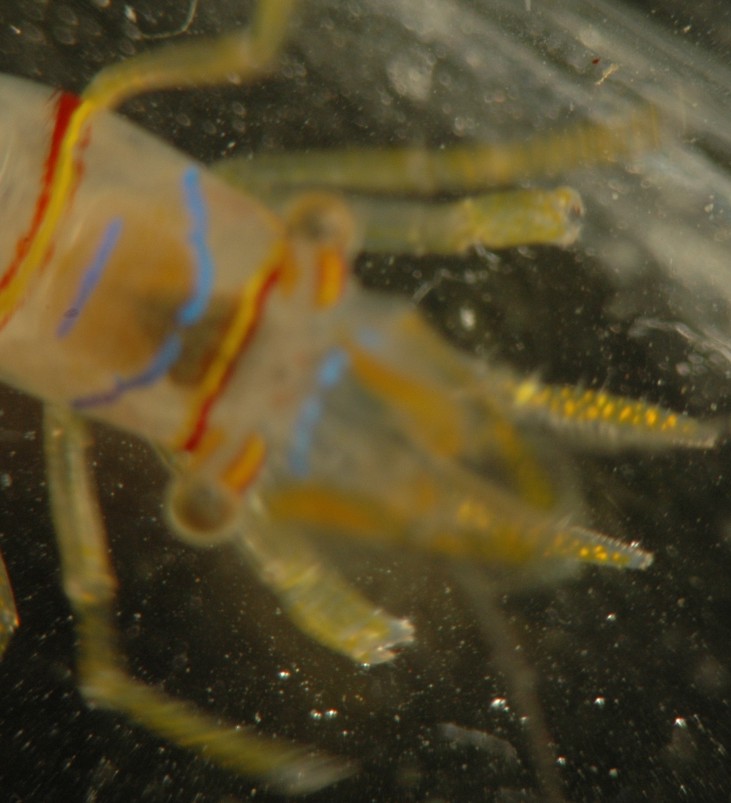Lebbeus grandimanus (Brazhnikov, 1907)Common name(s): Candy stripe shrimp, Clown shrimp |
|
| Synonyms: Lebbeus grandimana |  |
| Phylum Arthropoda
Subphylum Crustacea Class Malacostraca Subclass Eumalacostraca Superorder Eucarida Order Decapoda Suborder Pleocyemata Infraorder Caridea Family Hippolytidae (broken-back shrimp) (now in family Thoridae) |
|
| Lebbeus grandimanus, about 2 cm long, found on an anemone at about 10 m depth near Northwest Island | |
| (Photo by: Dave Cowles, August 2006) | |
How to Distinguish from Similar Species: The bright colored bands on this shrimp are distinctive.
Geographical Range: Aleutian Islands, Alaska to Puget Sound
Depth Range: 6-180 m
Habitat: Often lives on rocks in association with the anemone Cribrinopsis fernaldi, Urticina crassicornis, U. piscivora, or U. columbiana. Most commonly associated with Cribrinopsis (photo).
Biology/Natural History: Often lives on rocks in association with the above anemones, remaining on the base of the column or foraging around on the oral disk picking up scraps. The shrimp seems immune to the anemone's nematocysts. They have been found in the guts of Pacific Halibut off Alaska.
| Return to: | |||
| Main Page | Alphabetic Index | Systematic Index | Glossary |
References:
Dichotomous Keys:Kozloff 1987, 1996
Wicksten, 2009
General References:
Gotshall,
1994
Jensen,
1995
O'Clair
and O'Clair, 1998
Scientific Articles:
Stevens,
Bradley G. and Paul J. Anderson, 1998 An
association between
the anemone, Cribrinopsis fernaldi, and shrimps of the families
Hippolytidae
and Pandalidae. J. Northw. Atl. Fish. Sci. 27: 77-82
Web sites:
General Notes and Observations: Locations, abundances, unusual behaviors:

This closeup of the anterior end shows the chelae.
Authors and Editors of Page:
Dave Cowles (2006): Created original page